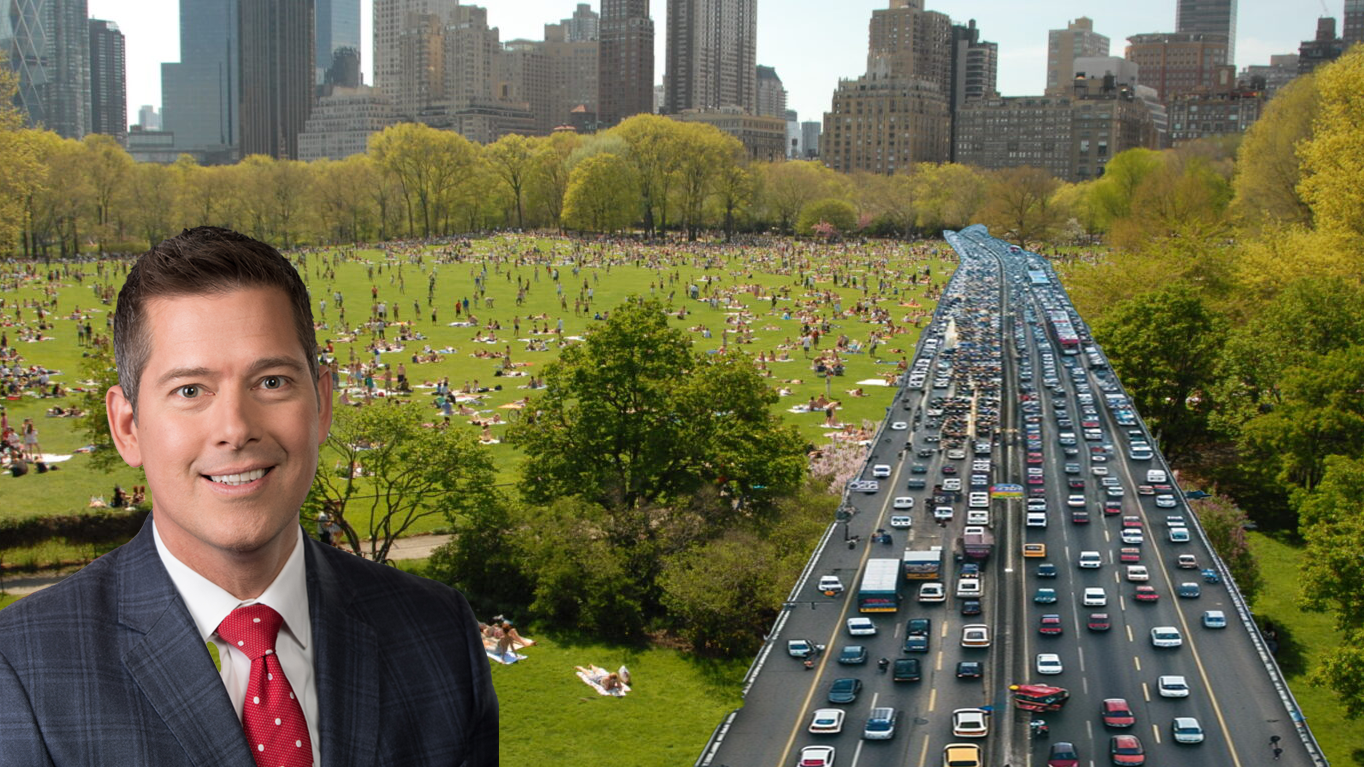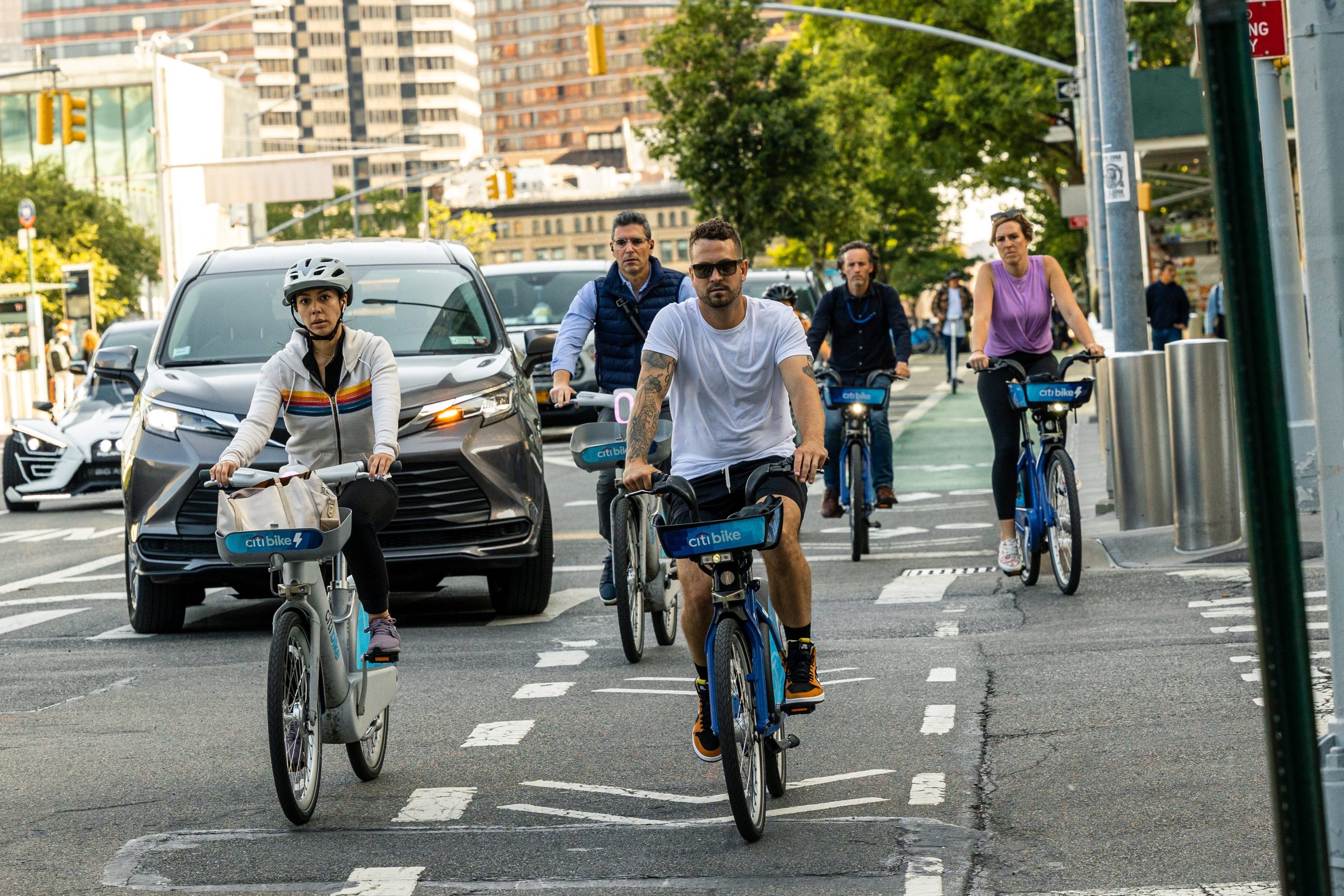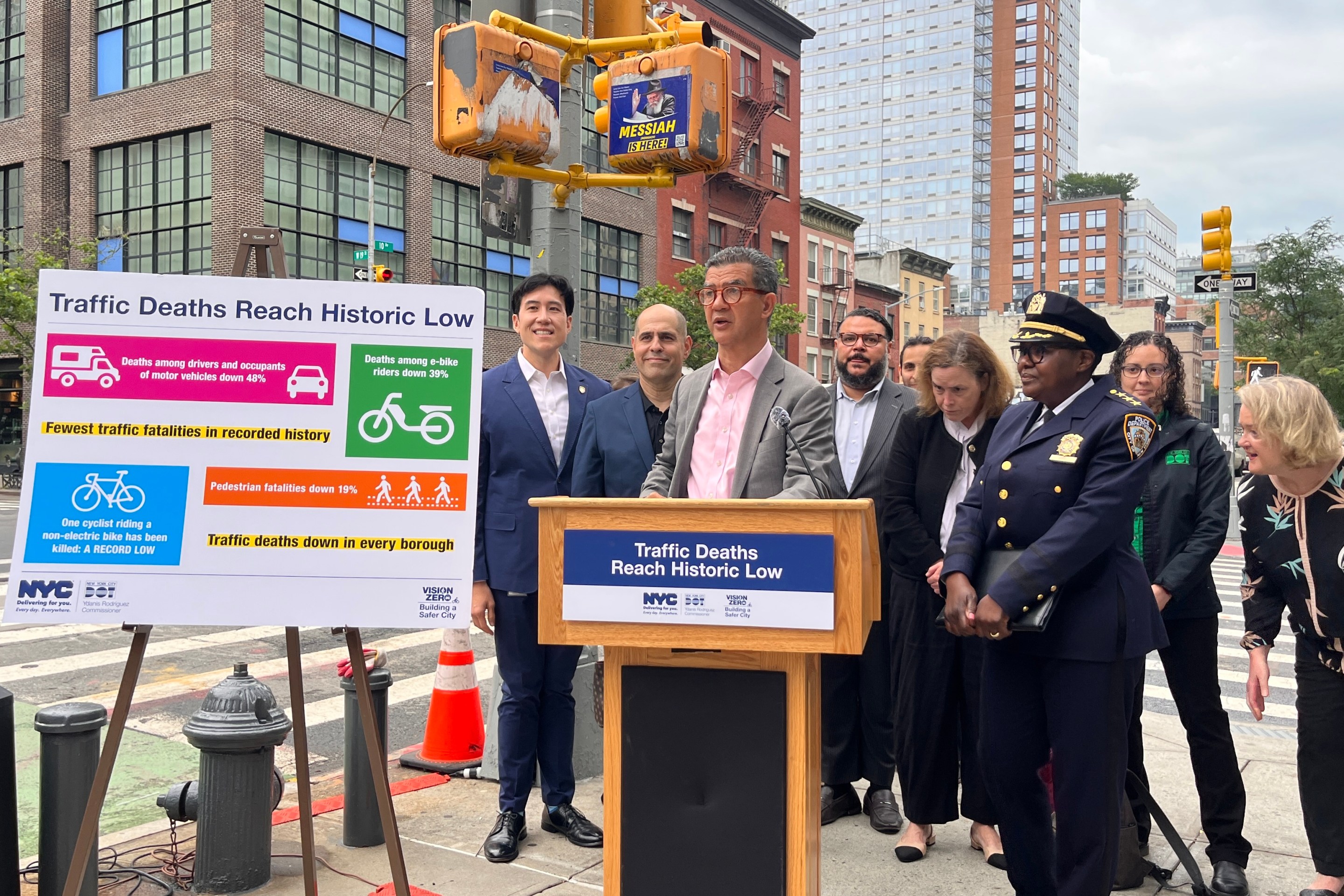What would it take to make Louisville a bike-friendly city?

Bike Louisville, a city agency, is proposing a network of traffic-calmed, low-stress streets to fill gaps in the current bike network and increase safety.
Network blog Broken Sidewalk describes the plan for roughly 100 miles of "bike boulevards" that prioritize active transportation:
Bike Louisville is finishing the first phase of its Neighborways plan, which consists of painting “sharrow” markings on many neighborhood streets to guide cyclists to use those streets and remind motorists to share the road with cyclists. And already, sharrows are starting to show up all around town. When complete, there will be 100 miles of Neighborways marked with sharrows throughout the city.
Phase II was recently approved by Metro Council, and will begin soon with a focus on creating wayfinding signage so system users can find their way through the network and connect to important “nodes” or destinations along the way. This signage could take the form of signs like the ones above that indicate a destination and the distance to bike there.
Eisinger elaborated that there is also a plan to build “bump outs” on some streets -- either intersection “neckdowns” or mid-block “chicanes” -- to create a serpentine path of travel that forces motorists to reduce their speed. According to Bike Louisville, “As funds become available, routes show increased use, and local neighborhood support builds, the Neighborways could evolve to incorporate higher design details such as signage, traffic calming, and traffic reduction.” More ambitious future phases could also combine these traffic calming measures with green infrastructure that adds landscaping along the routes while diverting stormwater from Louisville’s combined sewer system.
Elsewhere on the Network today: NextSTL reports on a new hurdle for a proposed loop trolley in downtown St. Louis: Bids have come in $11 million higher than expected. ATL Urbanist tells the story of his personal journey from car commuter to transit commuter in Atlanta. And Urban Milwaukee explains why Wisconsin has such weak drunken driving laws.





